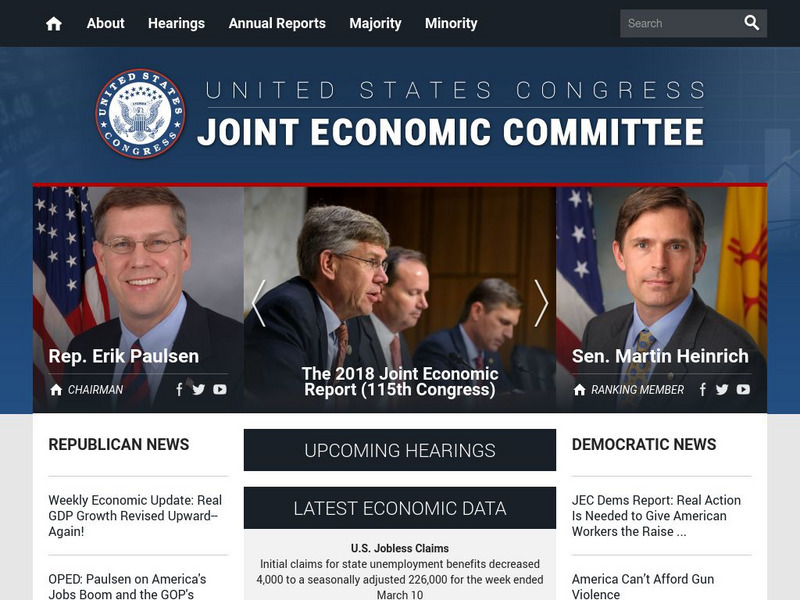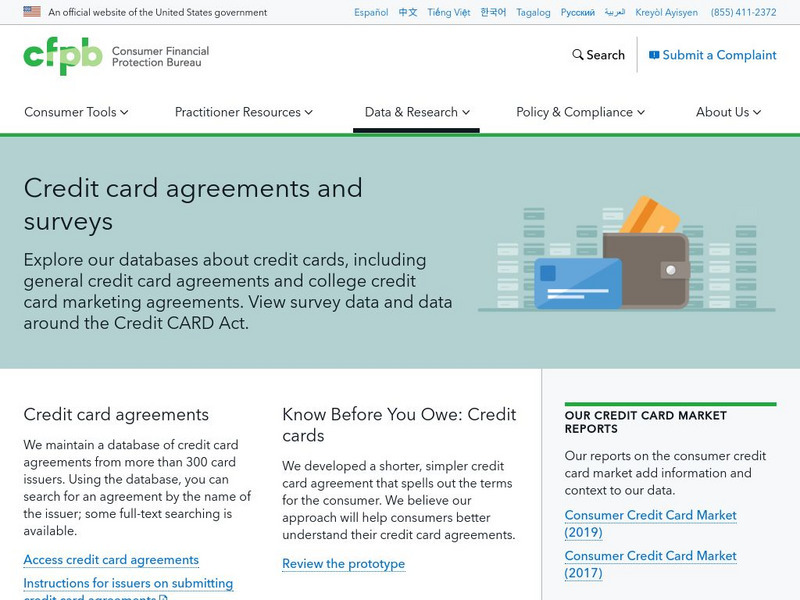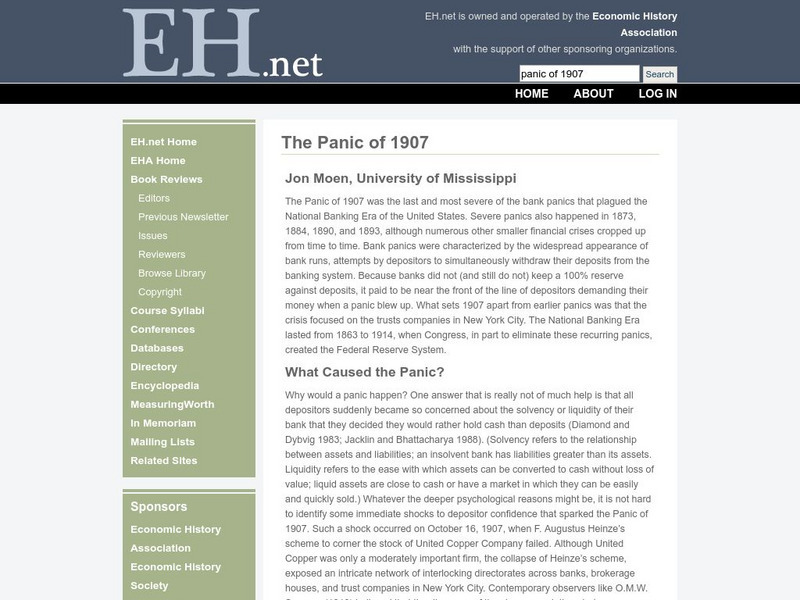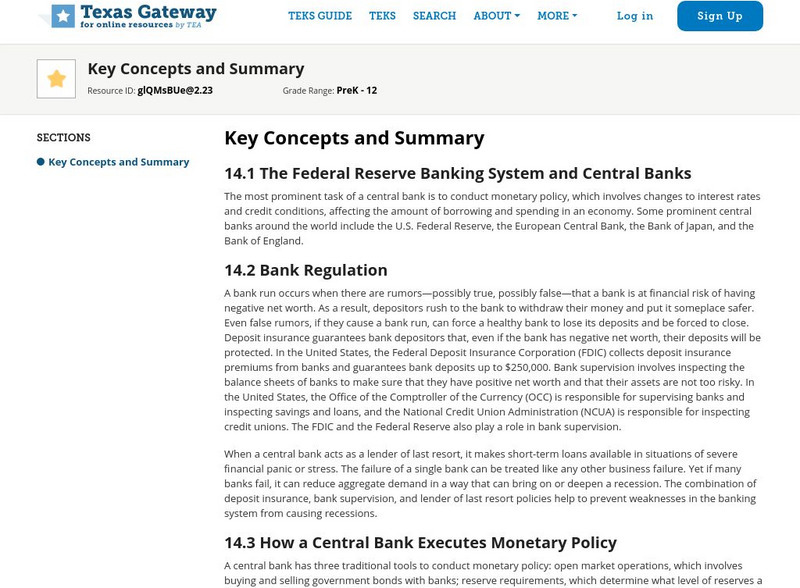US Senate
Joint Economic Committee
The Joint Economic Committee, composed of memebers from both the United States Senate and the House of Representatives, reviews economic conditions and recommends improvements in economic policy. The content of the website includes...
Library of Economics and Liberty
Concise Encyclopedia of Economics: Monetary Policy
Offers an in-depth description of monetary policy, its characteristics, functions, and goals.
Auburn University
Auburn University: Glossary of Political Economy Terms: Monetary Policy Defined
This site provides a very thorough definition of the economic concept of monetary policy. The explanation is by Dr. Paul Johnson of Auburn University
Consumer Financial Protection Bureau
Consumer Financial Protection Bureau: Credit Cards
Thinking about opening a credit card? This resource gives consumers information about maneuvering the credit process. Use the interactive guide to learn more about terms and fees offered by credit cards. Also, open the online calculator...
Other
University of Exeter: Money in North American History
This resource provides information about money in North America from Wampum to electronic transfer.
Other
Economic History Services: The Panic of 1907
Find out what a bank panic is and read about why the bank panic of 1907 was one of the worst in U.S. history.
Smithsonian Institution
History and Archaeology: The Financial Panic of 1907: Running From History
In this article from Smithsonian Magazine, the author interviews Robert F. Bruner, who co-wrote the book, The Panic of 1907: Lessons Learned from the Market's Perfect Storm, published in 2007, before the meltdown in the U.S. economy...
Other
Money: What It Is, How It Works: Understanding Government Debt
This article discusses how our monetary system works and the role the government plays. Organized into the following sections: "Government Money," "Treasury Options", "Tax or Borrow?", "Rolling Over Government Debt", and "Net Financial...
Other
U.s. Treasury: History of u.s. Currency
This page provided by the Bureau of Engraving and Printing gives the the history of paper money from the colonial notes in 1690 to the currency redesigns of 1996 and 2003.
US Department of the Treasury
Secretaries of the Treasury: Carter Glass
The accomplishments before, during, and after Carter Glass's tenure as Secretary of the Treasury are chronicled in this biography. A portrait of Glass is also provided.
University of Nebraska Omaha
University of Nebraska: My Money [Pdf]
A teaching resource with teacher guides, lesson plans, and a test of money for grades 4, 5, and 6. Includes exercise sheets.
Curated OER
Unesco: Russian Federation: Putorana Plateau
This site coincides with the area of the Putoransky State Nature Reserve, and is located in the central part of the Putorana Plateau in northern Central Siberia. It is situated about 100 km north of the Arctic Circle. The part of the...
US Department of State
American Life: Discontent and Reform
This article from the US Department of State, "USA History in Brief," reviews the reasons for and results of Progressivism in the early 20th century.
Massachusetts Institute of Technology
Mit: The Dismal Science: The Gold Bug Variations
This page provides access to the article, "The Gold Bug Variations: The gold standard-and the men who love it." In it, Paul Krugman discusses the relationship between the gold standard and monetary policy. (Nov. 22, 1996)
Texas Education Agency
Texas Gateway: 14: Monetary Policy & Bank Regulation: Key Concepts and Summary
This section provides a summary of all of the key concepts in Chapter 14: Monetary Policy and Bank Regulation from the Texas Gateway AP Macroeconomics online textbook.
Bill of Rights Institute
Bill of Rights Institute: Constitution of the United States of America (1787)
The Constitution was written in the summer of 1787 in Philadelphia, Pennsylvania, by delegates from 12 states, in order to replace the Articles of Confederation with a new form of government. It created a federal system with a national...













